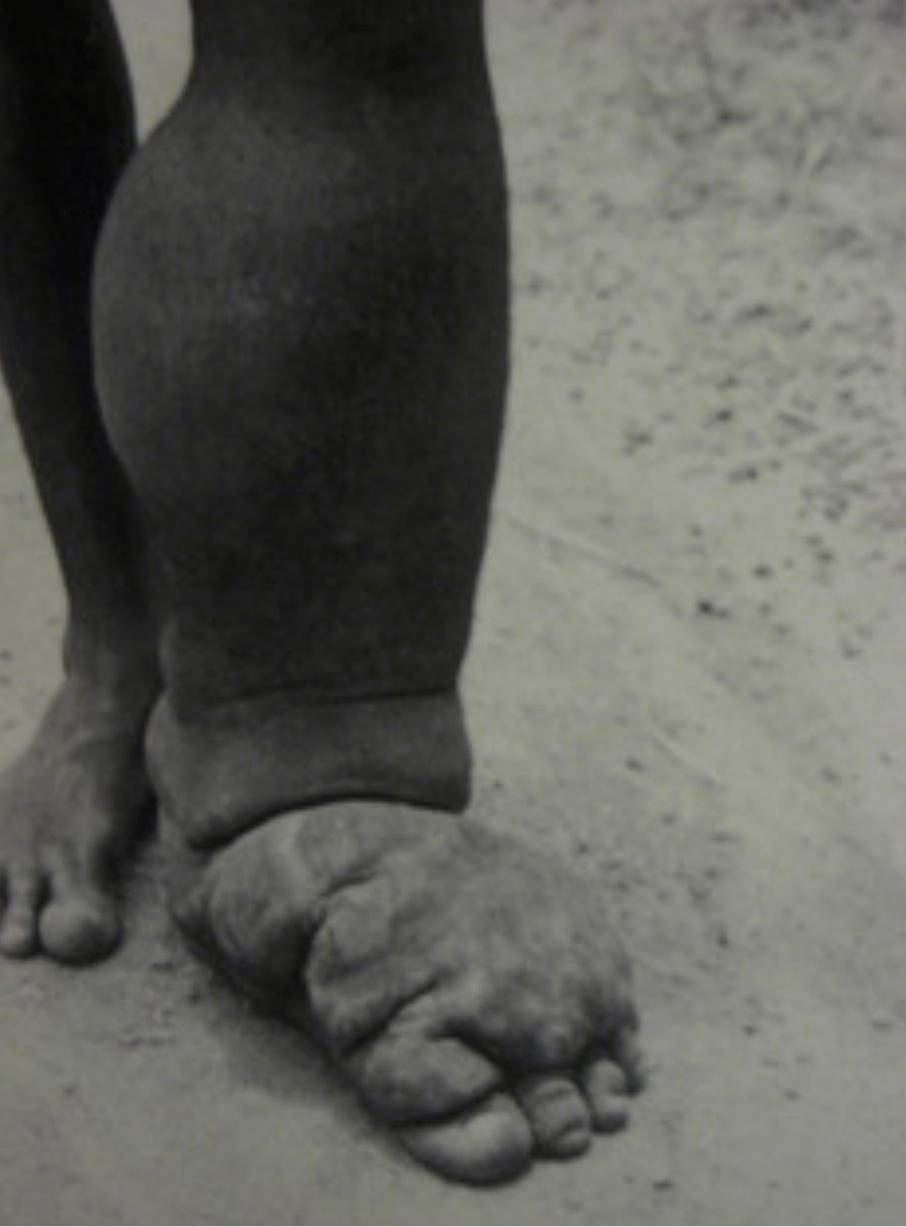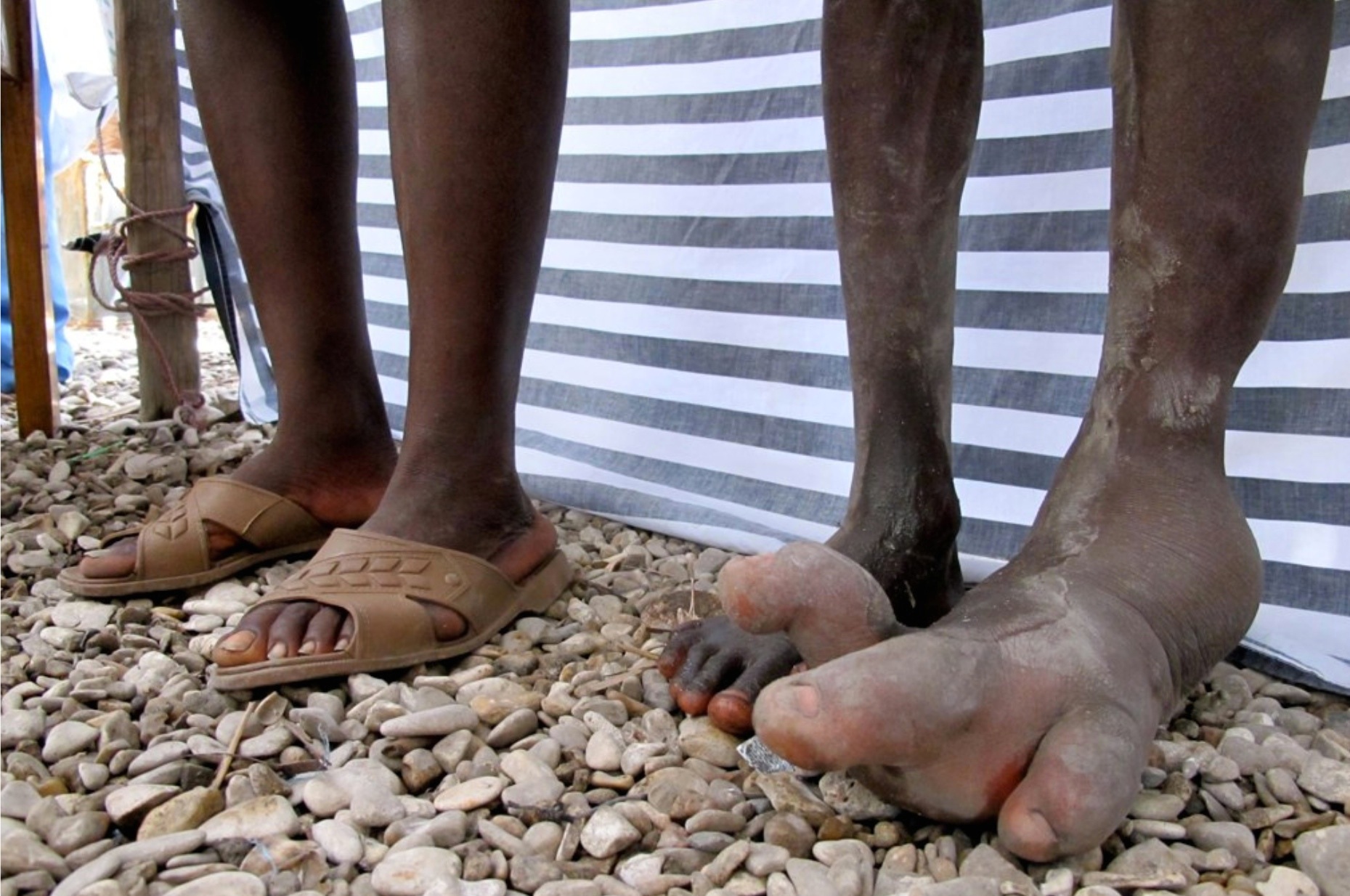Effects on Humans
Brugia malayi is the main source for lymphatic filariasis, a condition known for infection and inflammation of the lymph nodes. Nonetheless, most infected people do not have any indications of the disease and never will develop symptoms (CDC 2013). Only a small percentage of people actually experience the swelling of lymphatic vessels as described below.
Upon initial infection, symptoms of B. malayi may not be present because it hasn't yet matured. As the microfilariae mature, swelling of the lymph nodes takes place. Once B. malayi has grown into an adult, inflammation of the lymphatic vessels commences. The effected vessels may become tender and warm to the touch. Abscesses, sores, and ulcerations may also form during infection (CDC 2013).
The lymphatic system’s major function is to sustain liquid stability and balance throughout the body (Cancer Research UK 2013). As the lymphatic vessels continually become inflamed, circulation is impeded due to the blockage of lymphatic vesicles by dead adult worms, inflammatory fibrosis, or granulomatous reactions. This leads to extreme expansion and swelling of appendages. B. malayi usually causes the enlargement of lower extremities below the waist. However, the nematode Wuchereria bancrofti can cause tremendous enlargement in arms, legs, breasts of women and even the genitalia of men (CDC 2013).
 The
enlargement of the limbs is a condition also known as elephantiasis. This
usually occurs after years of being infected with the parasite (CDC 2013). Due to the disfigurement and deformities, B.
malayi may restrict a person’s range of motion, movement, and quality
of life. The parasite can cause mental complications as well. Many humans
who are hosts of B. malayi suffer from depression due to society
shunning them based on their outer appearance (Arcari 2000). The lymphatic
system is also an intricate and involved part of the immune system (Cancer
Research UK 2013). Secondary bacterial infections are therefore extremely
common in humans with B. malayi due to the damage of the lymphatic
system. B. malayi alone does not cause death, but secondary
bacterial infections may become deadly without proper medication and
treatment (CDC 2013).
The
enlargement of the limbs is a condition also known as elephantiasis. This
usually occurs after years of being infected with the parasite (CDC 2013). Due to the disfigurement and deformities, B.
malayi may restrict a person’s range of motion, movement, and quality
of life. The parasite can cause mental complications as well. Many humans
who are hosts of B. malayi suffer from depression due to society
shunning them based on their outer appearance (Arcari 2000). The lymphatic
system is also an intricate and involved part of the immune system (Cancer
Research UK 2013). Secondary bacterial infections are therefore extremely
common in humans with B. malayi due to the damage of the lymphatic
system. B. malayi alone does not cause death, but secondary
bacterial infections may become deadly without proper medication and
treatment (CDC 2013).
This disease is still not completely understood. It is not yet known why men typically showcase worse, more intense symptoms than women. The infection is also usually acquired at a young age, but adults tend to develop more intense symptoms compared to children. This most likely occurs because the disease has had more time to develop throughout the adult’s life span (Gnanasekar and Ramaswarny 2007). Come learn more about the control and treatment of lymphatic filariasis!
←Interactions Home Treatment and Control→

